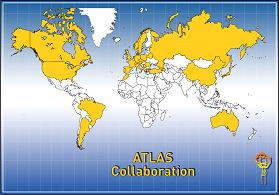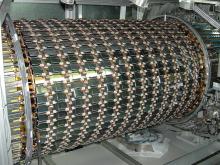About the Project
- ATLAS is a particle physics experiment that is exploring the fundamental nature of matter and the basic forces that shape our universe. ATLAS is one of the largest collaborative efforts ever attempted in the physical sciences. There are 3000 physicists (including 1000 students) participating from more than 174 universities and laboratories in 38 countries.
- Starting in early-2009, the ATLAS detector began searching for new discoveries in the head-on collisions of protons of extraordinarily high energy.
- CERN will upgrade the LHC accelerator in future years to provide higher event rates and an order of magnitude increase in luminosity, and hence access to new physics processes.
- The group is actively analysing the recently acquired data, searching for new physics processes such as supersymmetry and strong gravitational effects. The physics program is expected to continue for the next 15 to 20 years.
- The major hardware contribution of the group to the current ATLAS detector was the development, production and quality control of silicon microstrip sensors, modules and readout electronics for use in the ATLAS semiconductor tracker (SCT). The group is now building on this experience by working on an R&D programme for an upgraded ATLAS tracker and Level 1 Trigger, to solve the challenges presented by the very high radiation levels and rates in an upgraded LHC environment.


